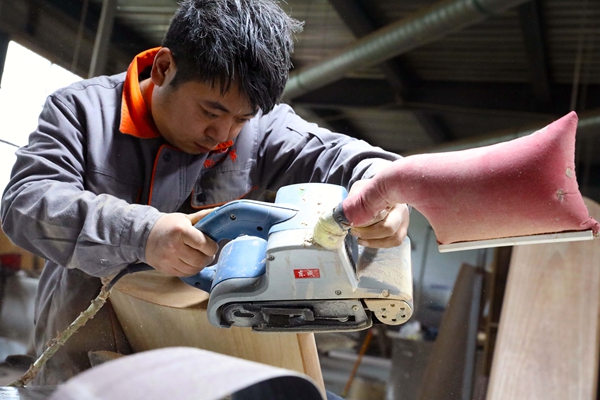

Walking through the village, there is music everywhere. Since the industry took off in the 1980s, about 90 out of Xuchang's 105 families produce up to 20 kinds of folk instruments, including zithers like guzheng and guqin as well as pipa, a Chinese lute, and yangqin, a Chinese hammered dulcimer, alongside related products like stands, stools and other accessories.
Xu initially had no interest in guqin, even though his father was in the business. That changed after he watched the opening ceremony of the 2008 Beijing Olympics, when the beauty of traditional cultural elements like writing brushes, ink sticks, paper and ink stones, accompanied by music played on guqin, impressed him. After that, he developed a hobby around what he regards "an elegant musical instrument that expresses Chinese culture".
At the age of 16, he began learning how to play the guqin, and he has since traveled across China-from Yangzhou in Jiangsu province, Kaifeng in Henan province to Beijing and Shanghai-in a bid to understand the whole production method and learn different playing techniques.
"When I was young, sales of the guqin were not good, as few manufacturers knew how to actually play and it was hard to promote," he says. "The older generation used to carry the guqin to Beijing, Shanghai and Guangzhou in Guangdong province to try to sell them, or would go to railway stations asking if anybody wanted one."